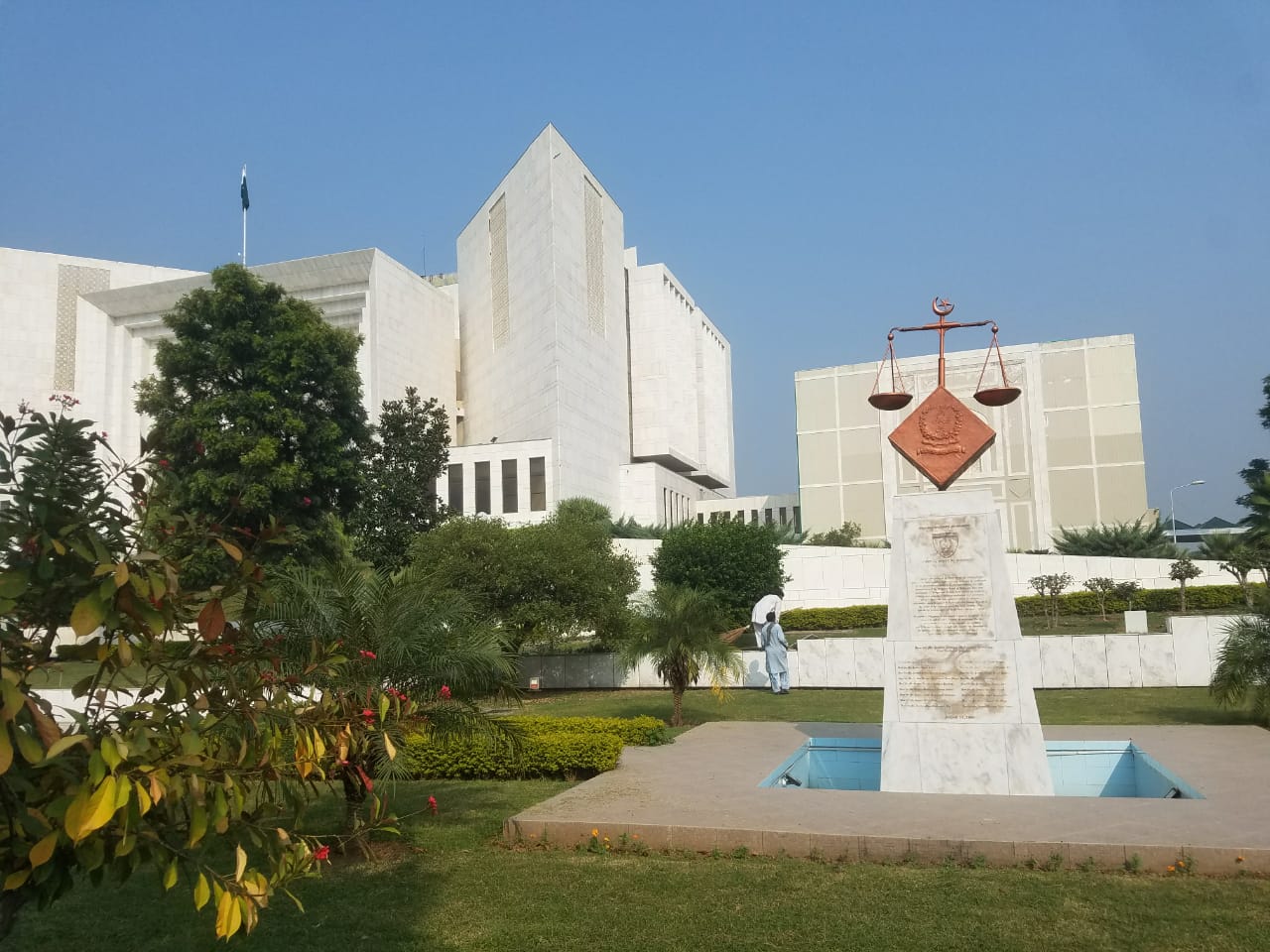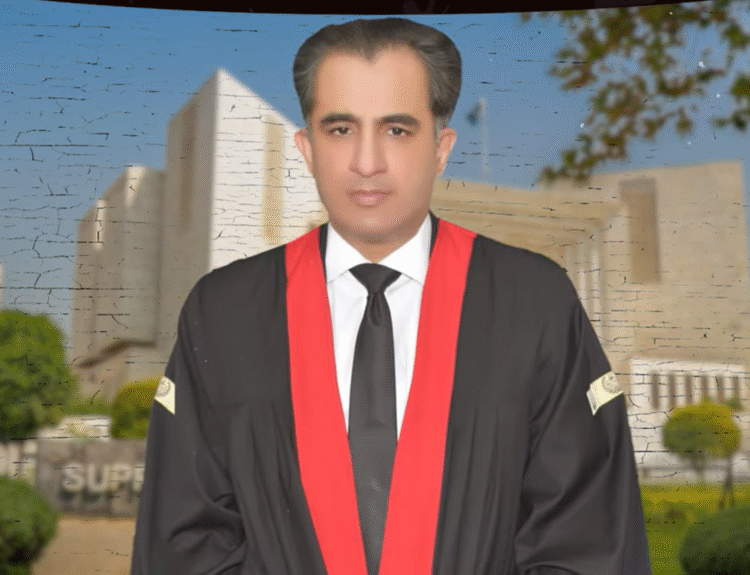By Khalid Hussain —
The full court of the Supreme Court (SC) hearing the constitutional petition by Justice Qazi Faez Isa appeared to go along in brooding acquiescence to the legal bombardment that appears to have shredded the government case to smithereens. Former Chairman Senate Raza Rabbani and Former Judge and past president of the SC Bar Association held the Asset Recovery Unit (ARU) has no legal standing.
The full court has been hearing the constitutional petition by Justice Qazi Faez Isa and 17 other associated petitions by individuals and bar councils from across the country
The government of Pakistan Tehrik-e-Insaf (PTI) and its ally Mutahida Qaumi Movement (MQM) were both targeting supreme court Justice Qazi Faez Isa and High Court judge K. K. Agha as they were not happy with judgements the two judges had passed in two different cases, Former Chairman Senate Raza Rabbani submitted before the full bench hearing attached petitions to the main one by justice Isa to quash the reference against him for being malafide.
Justice Umar Ata Bundia –leading the full court—was quick to ask if that was his ‘surmise’. “No, my lord”, Rabbani said firmly, “a little more than that for there is circumstantial evidence MQM was affected by his judgement.” This judgement has not been challenged unlike the one by Justice Isa on the Faizabad Dharna suo moto case that was challenged by PTI.
Raza Rabbani gunned down the ARU as he demolished the very basis of the Assett Recovery Unit (ARU) that started the reference process in motion. Following upon his arguments from yesterday, Rabbani said the only authority the executive has is limited to the “collection of information” when it comes to accountability of the judges of superior judiciary as “inquiry” is the sole jurisdiction of the Supreme Judicial Council (SJC).
Rabbani told the court the ARU came into being following a decision by the cabinet in its meeting on 13 January 2018 that was notified on 19 September 2018. Citing the Terms of Reference (TORs) of the ARU, he said the unit was set up for full-fledged inquiry as it had to many powers than it needs merely to collect information. Referring to many documents on record in his petition he showed the ARU had activated the Federal Bureau of Investigations (FBR), Federal Investigations Agency (FIA) and the intelligence agencies to investigate, probe and inquire into the affairs of Justice Qazi Faez Isa. Detailing the TORs, he argued the ARU rules were without the coverage of any law and violated constitutional provisions where by the whole reference becomes fractious as what the ARU did far exceeded “collection” of information.
The full bench appeared not to be in opposition to Rabbani’s line of arguments as not even Justices Faisal Arab and Munib Akhtar challenged his assertions. Justice Umar Ata Bundia also said he has “opened his eyes” on his exposition of the ARU powers and thanked him for his assistance to the full court which he declared was “graceful and eloquen”!
Rasheed A. Rizvi followed him for three different constitutional petitions by the Sindh High Court Bar Association, Karachi Bar Association and the Pakistan Federal Union of the Journalists (PFUJ). Referring to the Rules of Business, he also started by declaring the ARU has no legal standing and hence all material collected is illegal being unauthorized and hence the referene against Jusitice Isa was liable to be quashed.
He argued that ARU was not part of the government under the Rules of Business (ROB) in any of the schedules. Justice Munib Akhtar said the Cabinet Division have residual authority that can be delegated under the ROB. Rizvi disagreed asserting unless mentioned by name in the ROB, ARU cannot be considered part of the government. Since it is not governed by any law, an act of the parliament is needed to create it with legal authority.
There was some debate whether the President could hold an inquiry to check the veracity of a complaint against a judge of the superior court to which Rizvi said the President should have the authority to hold such an inquiry. Justice Mansoor Ali Shah said would that not open doors for everybody and Rizvi agreed saying even a “thanedar living in your locality would bring in an investigation that the judge is corrupt and he knows it because they live in the same area. “Accountability must be transparent”, Rizvi asserted, adding, “nothing is transparent in this case”.
Arguing that judges of the superior courts must have the peace of mind that if they pass judgements against the PM or the President, nothing will happen to them.
Before adjourning to next Monday, Justice Bundial noted the notion of the “fruit of the poisonous tree” needs to be further explored.
The full court is led by Justice Umar Ata Bandial. Other members of the full court include Justices Maqbool Baqar, Manzoor Ahmed Malik, Faisal Arab, Mazhar Alam Khan Miankhel, Sajjad Ali Shah, Mansoor Ali Shah, Munib Akhtar, Yahya Afridi and Muhammad Qazi Amin Ahmed.




